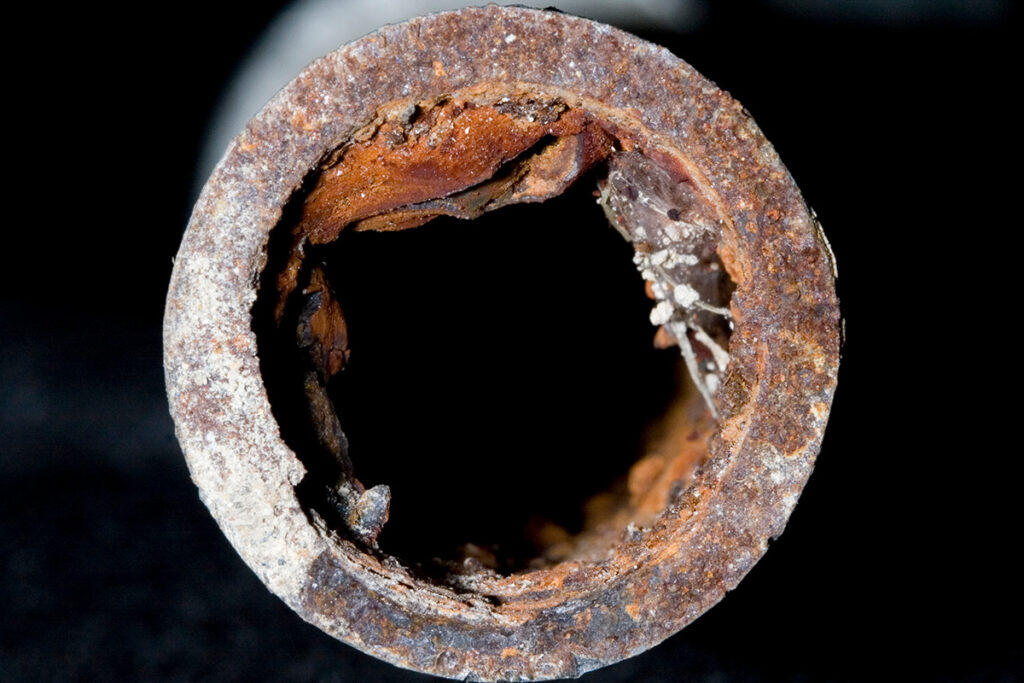You know that copper and lead can be extremely dangerous substances. But did you know that pipe corrosion could cause them to leach into you and your family’s water supply?
The problem with older homes
Nowadays, we know about the health problems caused by lead. But if your home was built before 1978, chances are there is some lead in your home, whether that’s lead-based paint, or lead components in your pipes. In 1978, the US government officially banned lead from household use. But that means, lead paint and lead in pipes is still a problem for millions of U.S. homes. And if your pipes begin to corrode, whether they’re lead, copper, or a different kind of metal, that corrosion can quickly turn into a huge issue.
The problem with newer homes
This problem doesn’t just affect older homes either! Plenty of homes still have copper or galvanized steel pipes. No matter what kind of metal pipes you have, corrosion can occur when water passes through them, which causes them to be ionically charged by the copper or steel. Because of the different ionic charge of the water versus that of the metal, your pipes begin to wear down. This is actually more true if the water is hot! Or, if you have hard water, that makes things worse! Hard water already has minerals that eat away at metal pipes. There are so many compounding factors that, over time, can cause your pipes to corrode.
Signs of corroded pipes
Pipe corrosion can happen slowly. So, if you’re wondering whether your pipes are corroding, there are some tell-tale signs that it’s time for the professionals at Biard & Crockett to come take a look:
- The dissolved metal can cause discolored water. This is one of the more obvious signs of pipe corrosion. And interestingly enough, if you have steel or iron pipes, it causes brown-colored water, whereas copper pipes cause “blue-green.” Corrosion can also cause the water in your Orange County home to have a weird taste or smell. If that happens, you need to contact us immediately!
- Bad water pressure. A less obvious sign of corrosion is that water isn’t coming out. That would mean you have enough corrosion in the pipes that it’s actually starting to build up a clog and reduce water pressure.
- Changing water temperature. Like we said before, hot water is more corrosive than cold water. So if you’re experiencing corrosion in your home it’s more likely to be going through the hot water pipes. Also, corrosion around the anti-scald valve in your sink can cause the temperature to change. So if your hot water does not stay at a very consistent temperature, that’s a definite sign of corrosion.
- Water leaks. This is one of the biggest signs. If you find a leak, that’s an obvious sign corrosion is eating away at your pipes so much that it created a hole. If there are leaks in your walls or ceilings, make sure you get on of our experts to come check it out!
Talk to a professional in Orange County
At Biard & Crockett Plumbing, Heating, & Air Conditioning, we know all about the problems that corroded pipes can cause. We’re always available to come take a look at your Orange County home and see what you might be experiencing! Contact us online or call now: (714) 602-1299

